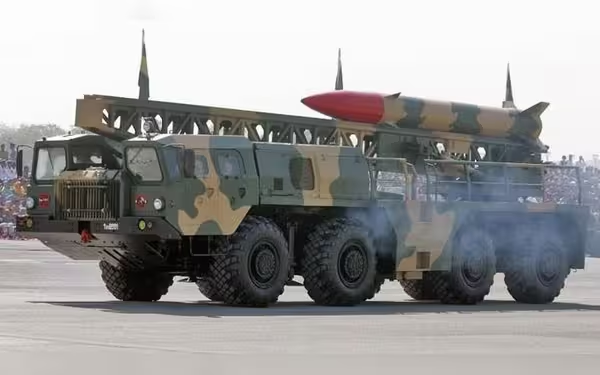Saturday, November 16, 2024 07:55 PM
US Sanctions on Pakistan's Ballistic Missile Programme
- US enforces sanctions on Pakistan's missile programme.
- Sanctions aim to ensure regional stability.
- Concerns over foreign assistance to Pakistan's military.
 Image Credits: thenews.com.pk
Image Credits: thenews.com.pkThe US continues sanctions on Pakistan's ballistic missile programme to ensure regional stability and protect national security interests.
The relationship between the United States and Pakistan has always been complex, particularly when it comes to military capabilities. Recently, the U.S. State Department has made it clear that it will continue to enforce sanctions against Pakistan’s ballistic missile programme. This decision is part of what U.S. officials describe as a "longstanding policy" aimed at ensuring national security. The U.S. believes that supporting Pakistan's missile development could pose a threat not only to regional stability but also to its own interests.
During a recent briefing, U.S. State Department Spokesperson Matthew Miller emphasized that the sanctions are a necessary measure. He stated that the U.S. will utilize "sanctions and other tools" to prevent the advancement of Pakistan’s ballistic missile capabilities. This approach reflects a broader strategy to curb the proliferation of missile technology, particularly when it involves nations that may not align with U.S. security interests.
Moreover, Miller addressed inquiries regarding the "real reasons and concerns" that led to the sanctions against a Chinese research institute and several companies. These entities have been implicated in supplying technology and materials that could enhance Pakistan’s missile programme. The U.S. is particularly vigilant about any foreign assistance that could bolster Pakistan's military capabilities, as it could lead to an arms race in an already volatile region.
It is essential to understand the implications of these sanctions. For Pakistan, the restrictions could hinder its technological advancements and military aspirations. On the other hand, the U.S. aims to maintain a balance of power in South Asia, especially in light of its strategic partnerships with India and other nations in the region. The ongoing tensions between India and Pakistan further complicate this scenario, as both countries continue to develop their military capabilities.
The U.S. sanctions on Pakistan’s ballistic missile programme are not merely punitive measures; they are part of a broader strategy to ensure regional stability and protect national security interests. As the geopolitical landscape continues to evolve, it remains crucial for all nations involved to engage in dialogue and seek peaceful resolutions to their differences. Understanding these dynamics is vital for anyone interested in international relations and security issues, as they shape the future of not just South Asia, but the world at large.













